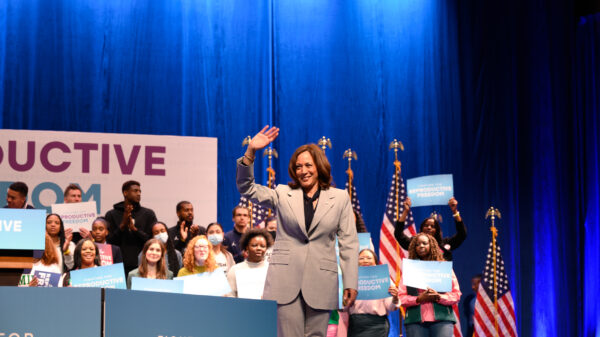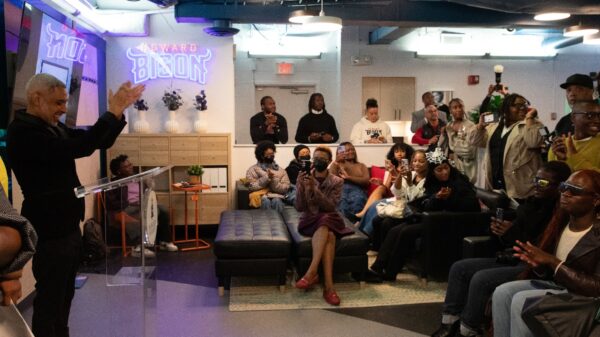Tawananyasha Mirra chose to attend Howard University for the cultural diversity and appeal it offered to international students like himself.
“I couldn’t believe it at first, I was so happy. I was overcoming all the odds and doubts in myself,” the freshman computer science major from Zimbabwe said, reflecting on his acceptance to the university.
While he is excited about coming to Howard, Mirra remains anxious about how he will pay for his education. Recent changes to the International Student Financial Aid Application (ISFAA) have left many to believe that financial aid for incoming international students was removed, and others disappointed in the university for what they believe is a disadvantageous decision to incoming international students.
Howard senior administrators say the students’ fears are based on a misconception. The ISFAA was not removed but adjusted to be merit-based, as opposed to need-based for incoming international students— a decision the university says better reflects equity.
All Howard international students are required to complete the ISFAA in order to be considered for financial assistance. Many students like Mirra are grappling with the new changes in the application process.
“We need the school to look at our finances rather than our grades and GPAs,” Mirra said. “Need-base is much more beneficial because it helps our families to pay a more comfortable tuition.”
On June 30, the Howard University African Student Association released a statement on Instagram condemning the university for what they say is a lack of support for international students. The organization alleged that the ISFAA was “taken away” from international freshmen for the upcoming academic year.
“This decision takes the opportunity of aid for incoming international freshmen away and leaves FTIC international students eligible only for merit-based Howard University Freshman Scholarship (HUFS) awards,” the statement read. “This decision does not serve the educational needs of students from all cultural backgrounds and furthermore neglects the communities they claim to uplift.”
Oliver Street, the associate vice president of enrollment management, said that international students are still eligible to receive donor scholarships and other aid in subsequent years based on their financial needs using the ISFAA, emphasizing that incoming students are still required to complete the application.
“It’s about creating equity between our domestic students as well as our international students,” he said. “It is about creating greater equity that ultimately allows us to support all of the students that we admit and ensure that we are able to successfully meet the goals of the institution and bring in a strong, diverse class.”
Senior administrators revealed to The Hilltop that the decision to adjust the application was made in the fall of 2022, and does not correlate with the Supreme Court’s decision to overturn affirmative action, despite student claims. Additionally, the changes would not affect returning international students, whose aid is grandfathered in.
The application mimics the FAFSA, the federal student aid application for students in the U.S. and curates a need estimate similar to that of the Estimated Family Contribution number that domestic students receive.
The reason for the change to merit-based aid, Executive Vice President Tashni-Ann Dubroy said, is that ISFAA does not provide “transparency” when it is solely need-based.
Dubroy explained that the ISFAA was first implemented to highlight the financial need of international students, but “once we started seeing that everyone was saying that they had a need, then the ISFAA does not provide the level of transparency that we would have initially thought that it did.”
“All it’s saying is no one can afford it (cost of attendance) once you do the dollar-to-dollar parity,” she said. “It really doesn’t illuminate anything compared to just saying to students ‘let me see what your grades are.’”
Street, who has previously worked in enrollment at Harvard University and George Washington University, said that merit-based aid for international students is the standard at most universities.
At George Washington University, a private university also located in Washington, D.C., international students are unable to receive need-based or U.S. government aid, according to the university’s website. At Georgetown University, also located in the district, financial aid for international students is “extremely limited” and students who do not receive a scholarship in their first year “will not be offered a scholarship in future years,” stated on the university’s financial services website.
To some education experts, while the merit-based approach to international student aid is common, it can drastically change the profile of the type of students admitted – not just to an HBCU like Howard, but all universities in the U.S.
“It will be more likely to attract applicants, and admissions, from students who had more invested in them from birth all the way up to 12th grade,” Emily Rauscher, an education equality expert and sociology professor at Brown University, said.
“More tutors, more rigorous math courses, depending on the country, even access to high-quality English class,” she said. “It will probably just create an inequality that just mirrors domestic inequality, but more excessive. It will limit education to the very well-off in other countries… It’s a very difficult decision to make and there’s no perfect place to put this on a sliding scale.”
Kofi Agyenim-Boateng, a junior computer science major from Ghana, says that without the need-based aid he was granted as a freshman, he wouldn’t have been able to come to Howard. Now, with an adjustment to a merit-based ISFAA, Agyenim-Boateng worries that the international student population will dwindle, altering the rich culture at Howard he has come to love.
“Howard always says they’re committed to serving the needs of people of all backgrounds,” he said. “But taking away need-based scholarships from international students who are coming into Howard doesn’t really seem like it’s going along the lines of that…it’s not going to have the diversity in the people who will be accepted.”
Howard’s first-time-in-college (FTIC) international student population has increased over the last five years. According to Howard’s institutional data, the university receives the most international students from Nigeria, with more than 600 students over the last six years, followed by Jamaica, Nepal, Trinidad and Tobago, and Saudi Arabia.
Iyanu Awomuse, a senior strategic, legal and management communications major, shared that his high school in Nigeria had established a “mini pipeline” to the university, recalling about 10 people he knew that had attended Howard. Now, the application adjustment for incoming students leaves him concerned about the priorities of the university.
“International students are surely under-resourced. Not just the financial aspect but in terms of just the knowledge of what it takes to afford schooling in the States and at Howard University,” he said.
In Nigeria, one United States dollar is equivalent to 773 Nigerian naira, making the tuition conversion difficult for some students to understand and afford. According to U.S. law, international students are required to prove that they can pay all the costs associated with their education, including tuition, room and board and travel costs when applying for a student Visa.
Sara Goldrick-Rab, a sociologist and higher education expert, believes that merit-based aid for international students is part of a larger financial aid issue at HBCUs.
“We’re really bad as a society at figuring out what people really need from a finance standpoint. Think about how many students think that FAFSA misunderstands them. Now, imagine how hard it is to take that out of this context and apply it to another country,” she said.
“Howard, like all HBCUs, is systemically underfunded. This is a financial issue about the university’s resources. Instead of that being a part of conversation, we have students thinking that the university just doesn’t care about them,” she added. “This isn’t being done from a stance of abundance or a place where the pool of resources could grow. Instead, it’s like we’re trying to figure out how to cut up the pie smaller.”
To further assist incoming international students and lessen any financial burden, the African Student Association launched the “Love Fund,” a GoFundMe aimed at providing academic tools, personal hygiene items and housing assistance.
While student organizations look for additional ways to support incoming international students, Dubroy emphasized her commitment to Howard’s mission of educating and serving students.
“We’ve never stopped serving students. We’ve always given students an opportunity, that doesn’t stop because of how we choose to distribute aid, merit v.s. need. That doesn’t stop that at all,” she said. “If we had all the funding in the world to be able to assist students whether domestic or international, this wouldn’t even be an issue.”
Dubroy shared that she looks forward to partnering with the Office of Student Affairs to talk with members of the international student population at Howard about their experiences.
Copy edited by Alana Matthew









